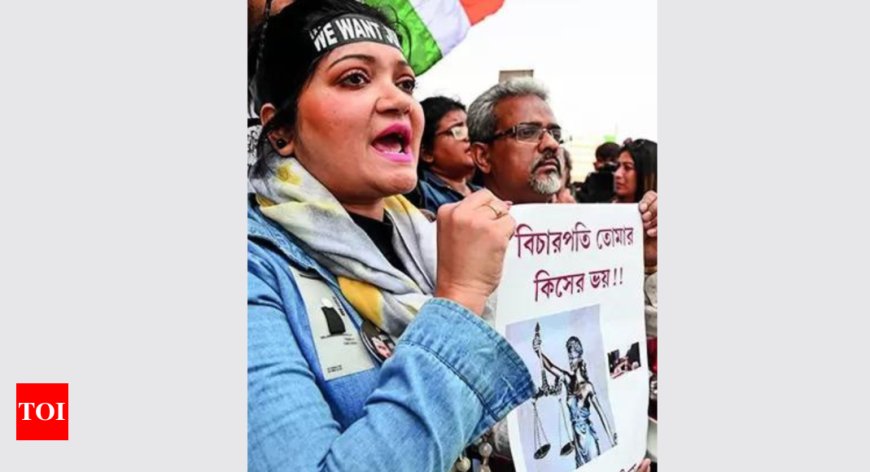RG Kar ruling: Life term right call, say anti-death advocates
Kolkata court judge emphasized reform over retribution in sentencing Sanjay Roy to life imprisonment for a rape-and-murder case. Experts and advocacy groups supported the ruling, arguing that capital punishment is not more effective than life imprisonment and should be reserved for 'rarest of rare' cases.

RG Kar Ruling: Life Term Right Call, Say Anti-Death Advocates
In a landmark decision, the RG Kar ruling has sparked a significant debate in legal and social circles regarding the appropriateness of life sentences versus the death penalty. Advocates against the death penalty have hailed this ruling as a major victory for human rights and social justice. As discussions unfold, it is vital to examine the implications of this ruling and its impact on future legal proceedings.
The Context of the RG Kar Ruling
The RG Kar ruling stems from a series of discussions focusing on the moral and ethical considerations of capital punishment. Anti-death advocates argue that life imprisonment serves as a more humane alternative, allowing individuals convicted of serious crimes the opportunity for rehabilitation rather than facing execution. This perspective echoes concerns from various human rights organizations worldwide advocating for the abolition of the death penalty.
Major Arguments from Anti-Death Advocates
One of the primary arguments put forth by anti-death advocates is the fallibility of the justice system. Instances of wrongful convictions highlight the potential for irreversible mistakes when imposing the death penalty. The RG Kar ruling reinforces the belief that life sentences can provide a chance for exoneration and justice for those wrongfully accused.
Additionally, opponents of the death penalty argue that life terms reflect a more evolved understanding of punishment and justice. By focusing on rehabilitation over retribution, society can work toward addressing the root causes of crime, which ultimately may lead to decreased reoffending rates. This shift in perspective is essential in evolving legal practices to reflect societal values.
Impact on Legal Precedent
The RG Kar ruling could set a notable precedent for future cases involving severe offenses. Legal scholars and practitioners are closely monitoring the implications of this decision, as it could influence the direction of sentencing in courts across the nation. The call for life sentences instead of the death penalty may align with broader societal trends emphasizing restorative justice methodologies.
Public Response and Critical Perspectives
The ruling has incited varied public reactions. While many celebrate this as a victory for compassion and understanding, others express concerns over how justice is served for victims and their families. Striking a balance between protecting societal interests and ensuring fairness in sentencing will continue to be a topic of heated debate moving forward.
Ultimately, the RG Kar ruling reflects a pivotal moment in the ongoing discourse surrounding capital punishment and its alternatives. The decision resonates with increasing voices advocating for systemic change within the justice system. Anti-death advocates position this ruling as a step toward ensuring human dignity remains at the forefront of legal practices.
For those interested in more insights on related legal matters and human rights issues, visit us at News by dharmyuddh.com to stay informed on the latest updates and analyses. Keywords: RG Kar ruling, life imprisonment vs death penalty, anti-death penalty advocates, human rights and justice, legal implications of sentences, restorative justice methods, capital punishment debate, wrongful convictions and justice, public response to life terms, societal implications of sentencing.







